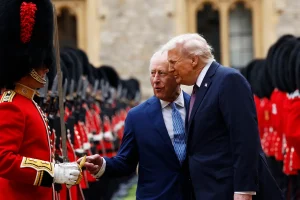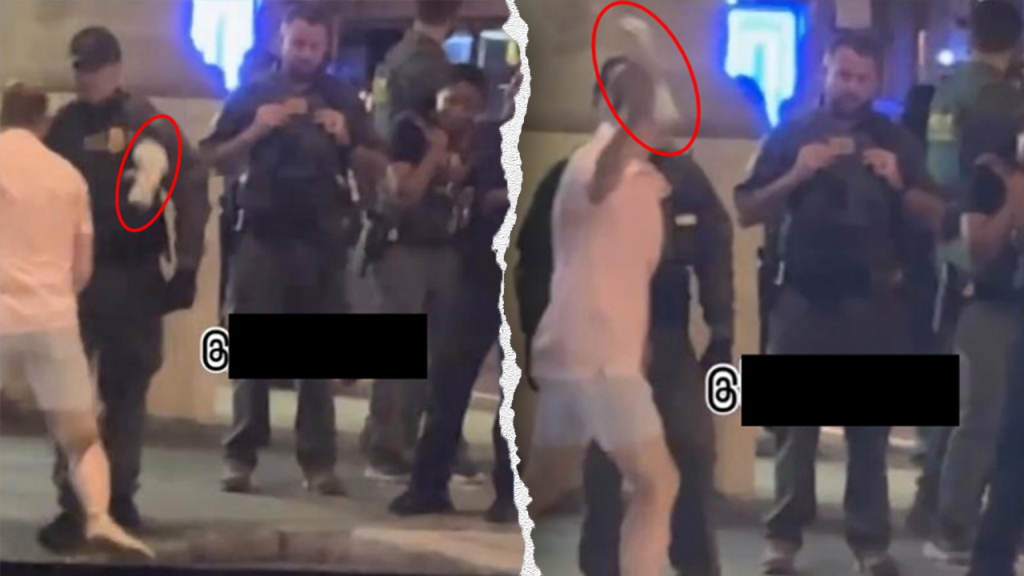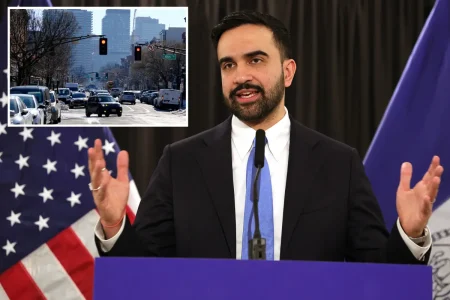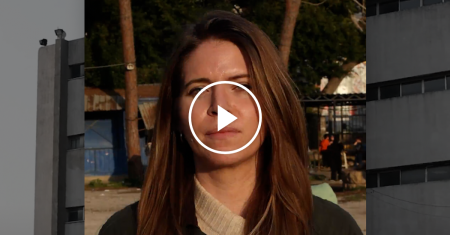The Sandwich Incident: Former DOJ Employee’s Confrontation with Federal Agents
In a peculiar turn of events in Washington, D.C., a former Department of Justice employee has avoided felony indictment after allegedly throwing a sandwich at a federal officer. The incident, which quickly gained viral attention, occurred amid President Trump’s expanded law enforcement initiative in the capital. The grand jury’s decision not to indict on felony charges has raised eyebrows, especially considering the aggressive stance on law enforcement that the current administration has championed.
Sean Charles Dunn, 37, found himself at the center of this unusual case after a confrontation on August 10 near 14th and U streets. According to witnesses and video evidence, Dunn approached Customs and Border Protection agents, shouting obscenities and declaring, “Why are you here? I don’t want you in my city!” The situation escalated when Dunn allegedly hurled his submarine sandwich at one of the officers, hitting him in the chest before attempting to flee the scene. The incident, captured on video that later circulated widely, shows bystanders laughing as federal agents pursued Dunn, who was subsequently apprehended. The consequences were swift and severe for Dunn, who lost his position at the Department of Justice following his arrest.
The case took an unexpected turn when, despite U.S. Attorney for D.C. Jeanine Pirro’s request for a felony indictment for assault on a federal officer, the grand jury declined to return such charges. Pirro had previously made strong public statements about the case, appearing in a video where she declared, “He thought it was funny. Well, he doesn’t think it’s funny today, because we charged him with felony assault on a police officer, and we’re going to back the police to the hilt. So there. Stick your Subway sandwich somewhere else.” This forceful rhetoric reflected the administration’s broader messaging around law and order in the District, yet it wasn’t enough to secure the felony indictment prosecutors sought.
The sandwich incident occurred against the backdrop of President Trump’s expanded law enforcement initiative in Washington, D.C., which has included National Guard deployments and an increased federal presence on city streets. The White House has touted the success of this crackdown, claiming it has resulted in more than 1,000 arrests to date. The enhanced federal presence has been controversial among some District residents, with critics arguing it represents federal overreach into local affairs. Dunn’s alleged comments to the officers—questioning their presence in “his city” and reportedly calling an officer a “fascist”—seem to reflect these tensions, transforming what might otherwise have been a minor altercation into a symbol of broader political divisions.
The case raises interesting questions about proportionality in law enforcement and prosecution. While throwing food at a law enforcement officer certainly constitutes disrespectful and potentially disorderly conduct, the grand jury’s reluctance to categorize it as felony assault suggests a consideration of the actual harm caused. The viral nature of the incident, with witnesses heard giggling as officers chased Dunn, may have influenced perceptions of the event’s seriousness. However, it’s worth noting that assaults on law enforcement officers of any kind are typically treated with significant gravity, regardless of the weapon used or injury caused, making the grand jury’s decision somewhat unusual in the current climate.
As of now, it remains unclear whether prosecutors will pursue lesser charges against Dunn for the sandwich-throwing incident. The Department of Justice has not yet commented on the case or on their former employee’s situation. The incident, while seemingly trivial on the surface, highlights the complex intersection of law enforcement policies, political tensions, and public perception in the nation’s capital. What began as a confrontation involving a sandwich has become an unexpected test case for how the justice system balances responding to disrespect toward law enforcement while maintaining proportionality in charging decisions, particularly in a politically charged environment where even minor incidents can take on greater symbolic significance.









